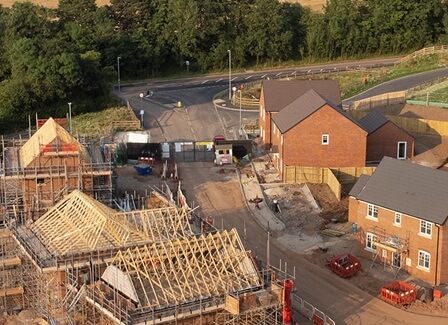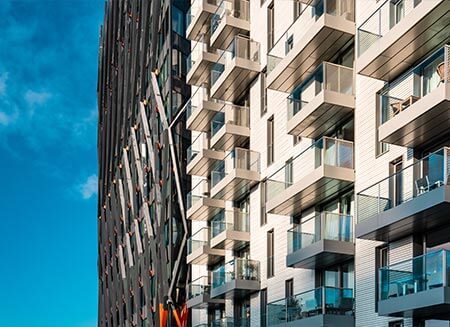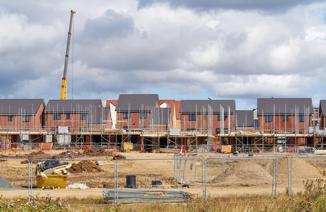Rent arrears post-Covid: What are the landlord’s options?
Since the beginning of the pandemic, landlords and tenants have experienced significant limitations in the way rent arrears could be pursued. We first saw the moratorium on the recovery of Covid related arrears, and more recently we’ve experienced the implementation of the Covid arrears arbitration scheme.
Since the beginning of the pandemic, landlords and tenants have experienced significant limitations in the way rent arrears could be pursued. We first saw the moratorium on the recovery of Covid related arrears, and more recently we’ve experienced the implementation of the Covid arrears arbitration scheme. However, the arbitration scheme closed to new referrals at the end of September and all old methods of rent recovery are now back on the table. We have not been in this position since before March 2020, so it is useful for both landlords and tenants to consider what those options are and the steps landlords can now take. It is important to note that these options are available in respect of all outstanding arrears, whether or not they were previously considered as Covid arrears/protected debt under the temporary Covid measures.
Debt Recovery Proceedings
Landlords can issue a money claim for a judgment ordering the tenant to pay the outstanding debt plus interest and legal costs. A judgment can be enforced through various measures including the seizing of goods or the charging of property owned by the tenant.
Assuming the tenant has no counterclaim and no reason to withhold rent pursuant to a lease, the process of obtaining a judgment may be relatively straight forward for a landlord. A landlord would often be able to obtain a default or summary judgment and avoid reaching trial.
Forfeiture
Most modern commercial leases include a forfeiture clause, enabling a landlord to terminate the lease by reason of non-payment of rent. This can be done by way of a Court application or by simply changing the locks. In the case of non-payment of rent, the landlord is not required to give the tenant any prior notice before terminating the lease.
Tenants can apply to the Court for relief from forfeiture and, if successful, the Court will make an order reinstating the lease. However, this is only available for a tenant if it pays the outstanding arrears and the landlord’s costs. Forfeiture is therefore an effective method of recovering arrears quickly in cases where defaulting tenants wish to remain in occupation. However, this option is less attractive for landlords if the demand for the property would be low. Landlords risk the tenant walking away from the property (and not claiming relief from forfeiture) and being left with a vacant unit and the arrears still outstanding.
It should also be noted that whilst this option appears to be quick and straightforward, there are many potential pitfalls for a landlord and a landlord could find itself to have wrongfully forfeited a lease. We therefore advise to seek legal advice before going down this route.
Commercial Rent Arrears Recovery (CRAR)
CRAR involves instructing bailiffs to take possession of items within property demised to the tenant equal to the value of the unpaid arrears. Even prior to Covid, CRAR has not been as popular as other enforcement methods due to the extensive limitations on the landlord’s ability to seize goods. It also only relates to principal rent and not service charge or other sums due under the lease.
This option is worth considering if landlords want to recover arrears quickly whilst leaving the lease in full force (and the tenant’s liabilities continuing). In addition, the potential bad publicity arising from a visit by an enforcement agents/bailiff is often enough to make a tenant settle their arrears promptly.
Insolvency
Insolvency procedures are appropriate if a landlord considers a tenant to be unable to pay its debts as they fall due. Non-payment of an undisputed debt (such as rent) would normally give a landlord sufficient grounds to conclude that the tenant is unable to pay and therefore initiate bankruptcy (for individuals) or winding up (for companies) proceedings. This can therefore be an effective method of recovering arrears from tenants that wish to remain solvent.
Other points
The above covers the principal options for landlords in recovering rent arrears. In addition, we would advise landlords to review leases for any other security provisions (including rent deposits and guarantors) which could be used instead of or in addition to these measures.
Many landlords have been out of pocket for over two years now and if the parties have been unable to negotiate a deal during this time, it is likely that we will see landlords using the options detailed above to recover rental arrears. Whether you are a landlord or a tenant, it is therefore important that you are aware of the rent recovery options now available. If you have any queries, our property litigation team can advise further as to which option would be the most appropriate given the circumstances of your case.









































